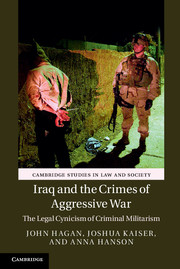4 - Night Falls on Baghdad
Published online by Cambridge University Press: 05 July 2015
Summary
FROM SUNNI- TO SHIA-CONTROLLED BAGHDAD
The thesis of this chapter is that the U.S. invasion of Iraq unleashed a self-reinforcing, self-reproducing, and self-fulfilling prophecy of fear, amplifying a brutal process of death and displacement that reconfigured a previously Sunni-dominated Baghdad into a Shia-controlled city. Recall that in addition to skepticism about the legitimacy of state and non-state actors and actions, fear about personal and family safety is a central component of the theory of legal cynicism. There was much to be cynically fearful about in post-invasion Baghdad.
Sunni and Shia militias posed dangerous and growing threats. Al-Qaeda, which was unwelcome under Saddam, gained a foothold with the most militant elements of the Sunni insurgency known as al-Qaeda in Iraq (AQI). At about the same time, a well-armed Mahdi Army emerged from the Shia-based Sadrist movement led by rising cleric Muqtada al-Sadr.
Many in Iraq believed that the U.S./coalition forces provoked the Sunni insurgents and the Shia Sadrists more than they protected the civilian population. Our thesis is that a rising fear in the civilian population became a further amplifying force and source of displacement of the Arab Sunnis from entire neighborhoods of Iraq's most populous city. The result was a new sectarian demography of Baghdad with radically cynical, exclusionary, and disadvantaging consequences for Arab Sunnis. Fear of this massive displacement and replacement, especially among Arab Sunnis, was not publicly acknowledged and was more generally denied by Bush administration policy makers – either as a result of their irresponsible ignorance or willful neglect of the sectarian realities of Iraq.
This ignorance/neglect is retrospectively and legally probative with regard to the charge of U.S. aggressive war. However, it is obviously important to also emphasize that it was al-Sadr's Mahdi Army that organized and enacted the displacement of Arab Sunni residents from Baghdad neighborhoods in a coordinated program of ethnic cleansing and crimes against humanity.
- Type
- Chapter
- Information
- Iraq and the Crimes of Aggressive WarThe Legal Cynicism of Criminal Militarism, pp. 96 - 129Publisher: Cambridge University PressPrint publication year: 2015

